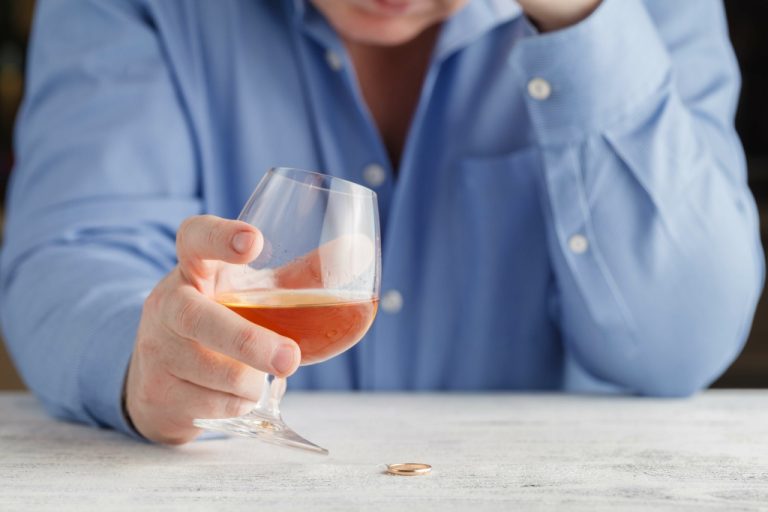High levels of consumption lead to organ damage in the developing organism and to disadvantageous behaviours, often involving increased risk-taking. At that stage, the toxic and harmful effects of alcohol dominate over the self-management benefits and eventually outweigh them 3,4,5,20. Adolescents and individuals of all ages with this behavioural pattern show an enhanced risk of lethal intoxication, accidental injuries and suicide attempts. If you or someone you know keeps using alcohol as a coping mechanism and has developed a substance use disorder, please know there’s help available. Even if you live a lifestyle with high-stress levels, there might be something else triggering you to reach alcohol. They can help you understand your alcohol consumption patterns and teach you healthy coping skills that don’t jeopardize your sobriety and health.
Cost of Addiction Treatment: Breaking Down Expenses and Finding Affordable…
Alcohol may decrease self-awareness and the emotional impact of negative self-evaluation after failure in social interactions in late adolescence and early adulthood 71, 72. Alcohol limits perceptual capacity and restricts the processing of cues related to social threat and defeat, as shown for adults 71, 73, 74. Even chronic alcohol consumption does not lead to addiction in the vast majority of users.
- The intersection of first responder stress and alcohol use is a complex and critical issue that demands our attention.
- Unfortunately, alcohol is a coping mechanism, the temporary benefits of which are often outweighed by the long-term negative effects on health and relationships, poor decision-making under the influence, as well as increased dependency.
- However, human beings with a genetic risk or submitted to environmental risk conditions can develop alcohol use disorder (AUD) 23,24,25,26,27,28.
Understanding the Draw of Alcohol for Stress Relief
Tracking the effectiveness of these policies is as important as their implementation. Continuous monitoring and responsive adjustments can lead to improved outcomes for the mental and physical well-being of healthcare employees, including first responders. The involvement of colleagues and family is crucial in the early detection of unhealthy alcohol use among first responders. Colleagues, often the first to notice changes in behavior, can play a pivotal role in recognizing the signs that may indicate a problem. Family members, who see the personal side of the stress that first responders face, are also key observers. While each individual’s experience is unique, common red flags should not be ignored.
- Coping mechanisms are activities or reactions people use to deal with something difficult for them.
- Human beings self-titrate alcohol doses individually to induce mild hedonic effects.
- Getting to the root of your drinking motives will help you gain a deeper understanding of your thoughts and behaviors and help you live a healthier life.
- Staying in denial can interfere with treatment and your ability to tackle life’s challenges.
- At Monument, we’re here to help you identify and adopt the healthy coping mechanisms that work best for you and allow you to see how you can get more out of life by drinking less.
- It can be helpful to seek a mental health or substance abuse professional to guide you in this process.
Integrating Healthy Coping Mechanisms into Daily Life
- This may support the view that alcohol consumption in non-addicted individuals is not driven by alcohol’s pharmacological reinforcing action and an initiated addiction trajectory that would eventually lead every user to AUD.
- Emotion-focused coping, on the other hand, involves managing the emotional fallout from a stressful situation.
- It may also be used in unfavourable social circumstances, such as being homeless.
- There may be a persistent fear of criticism, rejection, defeat and feelings of humiliation 64.
Participants completed a self-report survey about their alcohol use at ages 17, 22, and 23. Each year they were asked to report the frequency with which they had used alcohol (number of drinks) in the previous month. Similar individual item scores have been used in prior research on adolescent and young adult substance (Fosco et al., 2013; Stormshak et al., 2011), and have demonstrated validity for assessing alcohol use development over time (Fosco et al., 2013).

Behavioral changes in first responders may include increased irritability, social withdrawal, or a noticeable decline in work performance. Physical signs might manifest as sleep disturbances, weight changes, or unexplained aches and pains. It’s important for colleagues, friends, and family to be vigilant and aware of these indicators.

“Even people who aren’t predisposed to anxiety and depression are now experiencing that, too,” she says. While there’s nothing wrong with the occasional drink, though, experts say that while depending on alcohol to lift your mood may seem like a good idea, it actually does the opposite. I know it’s not great but there is a release in doing that which helps me to temporarily forget my problems and worries. “January can be a difficult time of year for so many people and families up and down the country when day to day concerns about finances and debt come sharply into focus,” she said. We do not receive any commission or fee that is dependent upon which treatment provider a caller chooses.

Given its focus on internal validity using a carefully controlled design in a laboratory setting, external validity will be a limitation of this study. Thus, findings will have alcohol as a coping mechanism to be complemented by investigations in real world settings to make definite conclusions about the association between stress and alcohol use and its underlying mechanisms. It’s important to give yourself the grace to realize that you’re learning as you go. The habit of winding down from a long week with a glass of wine or binge drinking on the weekend as a way to block out the stresses of the world may seem like common ways people escape. However, a better approach is tackling stressors head-on and finding a healthy way to cope that permanently adds value and fulfillment to our life.
Therapy is a valuable tool that gives you the space to talk through the emotions and stresses that may cause you to use alcohol to cope. You can work with a specialized therapist to discuss your past and current habits, and Substance abuse identify new tools and routines that support your unique set of goals. Additionally, support groups give you an avenue to engage with others who are confronting similar questions and challenges.
And, these feelings of negativity and misery are pronounced in the deaths we see related to despair. For example, alcohol is linked to an estimated 15% of all drug overdoses, 26% of suicides and 50% of deaths from liver diseases. The road to wellness after dealing with a substance use problem should be viewed through a long-range lens. It simply takes time to make such profound changes in your habits and lifestyle choices. Over time, the addiction coping mechanisms you adopt to maintain sobriety will also pertain to health and wellness. Physical methods include diaphragmatic breathing and progressive muscle relaxation, addressing the bodily symptoms of stress.
